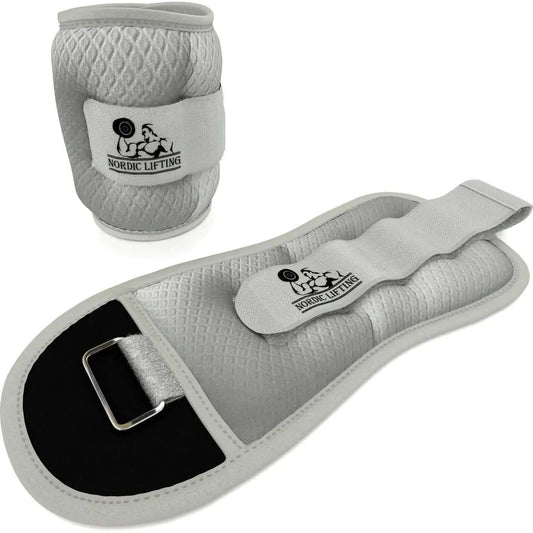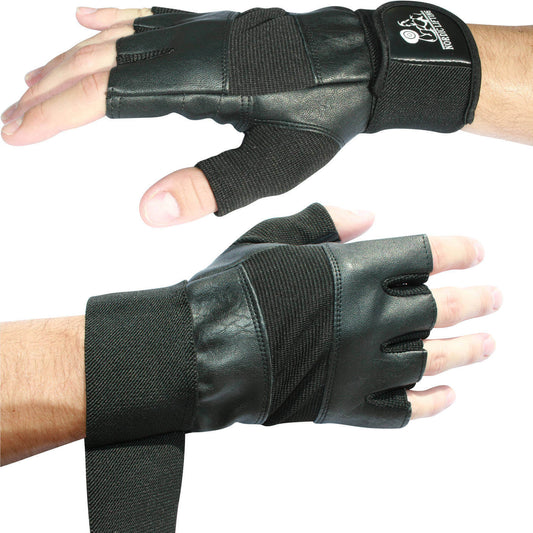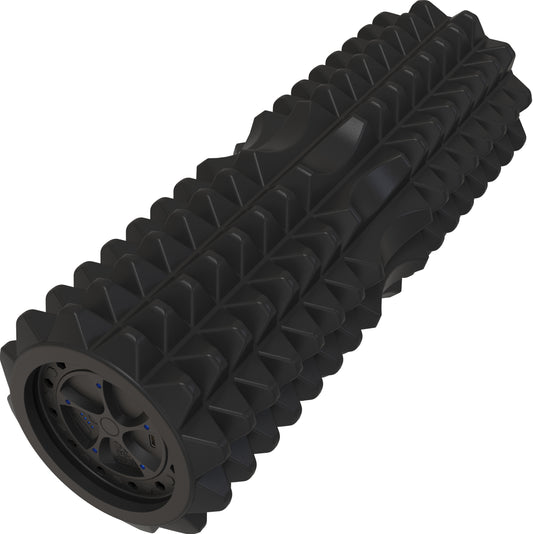Last Updated: April 24, 2025
Many people look for a simple and affordable way to boost their energy before a workout. Coffee has become a popular choice, with some gym-goers even swapping it for more expensive pre-workout supplements. But is coffee actually a good pre-workout drink, or is it just an old habit?
Coffee is a good pre-workout option for most people because it provides a natural energy boost from its caffeine content. Drinking coffee before exercise can improve focus, increase endurance, and enhance overall performance for many individuals, according to research and expert opinions shared by fitness professionals and health sources like Healthline. However, it's important to consider that everyone reacts to caffeine differently, and there are some potential downsides, such as jitters or trouble sleeping, if taken too late in the day.
Key Takeaways
- Coffee offers a natural energy boost for workouts
- Benefits include better performance and focus
- Some people may experience side effects from caffeine
How Coffee Works as a Pre-Workout
Coffee is often used before exercise because of its caffeine content. It can boost alertness, help with physical performance, and may be seen as a simpler option compared to some pre-workout supplements.
Caffeine’s Impact on the Body
Caffeine is the main active ingredient in coffee. When someone consumes caffeine, it enters the bloodstream and travels to the brain. There, it blocks adenosine, a chemical that makes people feel tired. This process causes an increase in alertness and reduces the feeling of fatigue.
Caffeine also raises levels of adrenaline, the hormone that helps the body prepare for physical activity. This can lead to a faster heart rate and more blood flow to muscles. These effects make people feel more awake and ready to move.
For many, these changes start within 30 to 60 minutes of drinking coffee. According to some experts, caffeine can help improve focus and reaction time, which is helpful during both cardio and strength workouts. More details on caffeine’s effects can be found in articles like Should You Drink Coffee Before a Workout.
Energy Levels and Physical Performance
Coffee may help improve energy levels before and during a workout. The caffeine in coffee makes people feel less tired, which can lead to longer or more intense exercise sessions. One of the main reasons coffee is popular for athletes is that it can help increase both stamina and endurance.
Several studies have shown that caffeine can improve strength, speed, and muscle endurance. For example, some people may be able to perform more repetitions or push harder during high-intensity activities. People usually feel most of these benefits if they drink coffee about 45–60 minutes before exercise, giving the caffeine time to be absorbed. More details can be found in studies reviewed by Healthline.
Coffee Versus Traditional Pre-Workout Supplements
Traditional pre-workout supplements often contain caffeine, but they also include other active ingredients like beta-alanine, creatine, or vitamins. Coffee is simpler, containing mostly caffeine and antioxidants with little or no added substances.
Those choosing between coffee and commercial pre-workouts might consider the following differences:
| Coffee | Pre-Workout Supplements |
|---|---|
| Single ingredient (caffeine) | Multiple ingredients (caffeine, amino acids, etc.) |
| Natural and inexpensive | May be costly |
| Familiar taste | Artificial flavors |
| Fewer additives | May contain sugar or dyes |
Many adults use coffee as a pre-workout because it is easily available and they like its natural taste. More on this topic can be found on fitness forums like Reddit. Coffee works as a pre-workout for those who want something simple and effective, while supplements may be better for those who want extra ingredients.
Benefits of Drinking Coffee Before Exercise
Coffee contains caffeine, a natural stimulant that can impact different aspects of athletic performance. Consuming coffee before a workout can help people feel more alert, improve stamina, and support calorie burning.
Enhanced Focus and Mental Alertness
Caffeine in coffee acts as a central nervous system stimulant. It increases alertness and helps reduce the feeling of fatigue. Many athletes drink coffee before exercise to feel more awake and focused during their activities.
A cup of coffee can lead to better reaction times, improved concentration, and sharper decision-making. This is especially important during high-intensity workouts where focus is needed to maintain good form and prevent injury. Improved mental alertness may contribute to a higher quality workout, allowing people to push themselves further and stay motivated. For more details, caffeine effects on mental alertness are well-documented in sports performance.
Increased Endurance and Stamina
Caffeine has been shown to improve endurance and stamina, which are key factors in athletic performance. When athletes consume coffee before exercise, they often notice they can exercise longer before feeling tired. This benefit helps with both aerobic and anaerobic activities like running, cycling, or weight training.
Studies suggest that caffeine can delay muscle fatigue by affecting how muscles use energy. It encourages the body to use fat stores for fuel, which helps save muscle glycogen for later in the workout. This leads to better performance and longer training sessions, as you can see from studies on endurance improvement with pre-workout coffee.
Boosted Metabolism and Calorie Burn
Drinking coffee before exercise can lead to a slight boost in metabolic rate. Caffeine stimulates the body’s metabolism, helping people burn more calories during their workout. This effect is more noticeable during and after intense physical activity.
Some research shows that caffeine supports the process of fat oxidation, where the body breaks down stored fat for energy. This can make workouts more effective for people trying to lose fat or maintain a healthy weight. A summary of these benefits and how coffee may contribute to fat burning and calorie use can be found through recent health findings.
Including coffee as a pre-workout drink may be helpful for those looking to maximize their exercise routine and achieve specific training goals.
Potential Drawbacks and Side Effects
Drinking coffee before a workout can cause unwanted side effects for some people. The main things to watch for are its impact on heart health, hydration, and sleep quality.
Potential Cardiovascular Responses
Caffeine, the main active ingredient in coffee, can raise heart rate and blood pressure. For most healthy people, this temporary increase may not be dangerous. However, those who are sensitive to caffeine could feel their heart racing or pounding. Some might also notice palpitations or irregular heartbeats.
People with heart conditions or high blood pressure need to be especially careful. Too much caffeine before exercise could make them feel lightheaded or bring on chest discomfort. These side effects may disrupt a workout or lead to worry about overall heart health.
In rare cases, high caffeine intake may raise the risk of more serious heart problems. It is important not to exceed about 400 mg of caffeine per day, which equals around 3–4 cups of coffee. Learn more about how coffee may affect the heart at Healthline's article on coffee before a workout.
Diuretic Effects and Hydration
Coffee is a mild diuretic, which means it can make people need to urinate more often. This effect is strongest in those who do not drink coffee daily. Extra trips to the restroom might be annoying before or during physical activity.
Mild dehydration can happen if a person is not drinking enough water along with coffee. Signs of dehydration during a workout include feeling tired, dizzy, or having a dry mouth. Athletes who sweat a lot may be at higher risk.
Staying hydrated is important for both performance and recovery. Anyone who drinks coffee before exercising should also drink enough water to stay hydrated. For more on this, see Peloton's post about coffee before a workout.
Impact on Sleep Quality
A common side effect of caffeine is trouble falling asleep or staying asleep. Drinking coffee, especially in the afternoon or evening, may lead to insomnia or poor sleep quality.
Caffeine can stay in the body for up to 6 hours or longer. This could cause people to feel restless or alert at night, even if they exercise earlier in the day. Over time, lack of sleep can make fatigue worse and reduce workout results.
Those who find that coffee disrupts their sleep should try drinking it earlier or switching to decaf. MyFitnessPal discusses this risk in their article on caffeine before workouts.
Optimal Coffee Consumption for Workouts
Drinking coffee can boost energy and focus before gym sessions. Timing and the right amount of caffeine are key to getting the best results.
Best Timing to Drink Coffee
Most studies show that caffeine levels in the blood peak about 45 to 60 minutes after drinking coffee. This is when its effects, such as alertness and improved focus, are strongest.
The best time to drink coffee is about 60 minutes before starting a workout. This gives the body enough time to absorb the caffeine and reach maximum concentration before exercise. Drinking coffee too late may not give the full effect during the workout, while drinking it too early could delay its benefits.
Tip: Try to avoid drinking coffee late in the day if it affects your sleep schedule.
Recommended Caffeine Dosage
The ideal caffeine amount often depends on body weight and sensitivity. Research suggests a dosage of 3 to 6 milligrams of caffeine per kilogram of body weight is recommended for most people before workouts. For a person who weighs 70 kilograms, that means 210 to 420 milligrams of caffeine.
A small cup of regular brewed coffee usually contains about 80 to 100 milligrams of caffeine. Some people may need less than the standard dose, especially if they are sensitive to caffeine. Adjust the amount based on personal tolerance and gym goals.
For more details, see advice on optimal timing and caffeine dosage from health experts.
Comparing Coffee to Other Pre-Workout Options
Some people choose coffee for its caffeine and simplicity, while others look for extra ingredients or nutrition benefits in dedicated pre-workout products. The right choice depends on personal goals, sensitivity to caffeine, and what a person wants to get from their workout.
Coffee vs. Commercial Pre-Workout Supplements
Coffee is a common go-to before exercise. It is simple, widely available, and provides a predictable caffeine boost. Many rely on coffee to help improve energy and focus at the gym. It is considered more “natural” and less processed by some people, making it an easy option for those who do not want extra additives.
Commercial pre-workout supplements often have more than just caffeine. They can include amino acids, beta-alanine, creatine, and vitamins to help with muscle endurance, blood flow, and alertness. These added ingredients may support longer or more intense workouts. However, because of the extra ingredients, there may also be more potential for side effects, such as increased heart rate or digestive discomfort.
For individuals who respond well to caffeine alone, coffee may be enough. Those who want extra ingredients for muscle performance may lean toward supplements. It is important to read labels and watch for how certain ingredients affect your body. For more on these differences, visit this breakdown of coffee vs pre-workout supplements.
Coffee, Protein, and Nutrition Strategies
Coffee provides no protein, vitamins, or minerals that help with exercise recovery. Some people choose to combine coffee with protein-rich foods before working out. Eating something like eggs, yogurt, or a protein shake can help muscles repair and grow during and after physical activity.
Commercial pre-workouts usually do not contain protein. They are focused on quick energy and increased performance, not muscle building or recovery. No matter if someone chooses coffee or a pre-workout drink, good nutrition habits remain important. Balanced meals and proper hydration should not be replaced by supplements or caffeine.
Some people time their meals and caffeine about 30-60 minutes before exercise for the best results. Matching coffee with a small protein snack can be a simple way to boost both energy and muscle support, without relying too much on specialty supplements. More information about these strategies can be found in this guide on nutrition and pre-workout drinks.
Who Should or Should Not Use Coffee as a Pre-Workout
Coffee can help boost energy and may improve exercise performance for many, but it is not ideal for everyone. Age, health, type of exercise, and medical conditions all play key roles in deciding if coffee is a safe and effective choice before a workout.
Considerations for Athletes and Gym Enthusiasts
Athletes and those who train at the gym often use caffeine to increase focus and power during exercise. Research shows that drinking coffee about 30 to 60 minutes before a workout can help with strength, alertness, and endurance, especially during intense or longer sessions. Performance benefits are usually seen with doses around 3-6 mg of caffeine per kilogram of body weight.
Many people find that coffee is a cheaper and more natural alternative to packaged pre-workout drinks. However, it is important not to add much fat or sugar before a workout, as this can cause stomach problems or slow digestion. Some may also feel jittery or anxious after drinking coffee, which can make it hard to concentrate during exercise.
Tips for Athletes Using Coffee:
- Try coffee first during training, not in a competition.
- Avoid high-fat creamers and sugar.
- Start with a small amount of caffeine and increase if needed.
For more, read about using coffee before a workout.
Pre-Existing Health Conditions
People with some health conditions should use caution or avoid coffee before exercise. Those with heart problems—such as high blood pressure or irregular heartbeat—may be at risk, because caffeine can raise heart rate and blood pressure. People with anxiety may notice their symptoms become worse after drinking coffee.
Individuals with type 2 diabetes may want to be careful. Coffee can impact blood sugar levels, sometimes causing them to rise or fall unexpectedly. If someone has stomach troubles like acid reflux or ulcers, coffee could also make these symptoms worse.
Who Should Be Careful:
- Anyone with heart disease, high blood pressure, or anxiety.
- People with type 2 diabetes or blood sugar control issues.
- Those with sensitivity to caffeine or stomach problems.
Get more details about coffee use with health conditions.
Frequently Asked Questions
Coffee is often used by people before exercise to help boost energy and alertness. Some wonder about the safety, timing, and type of coffee to use for workouts, as well as any possible drawbacks.
What are the benefits and drawbacks of consuming coffee prior to exercise?
Drinking coffee before exercise can help increase alertness and physical performance. It may also make it easier to exercise longer and burn more calories, as found in research on coffee as a pre-workout supplement.
A drawback is that coffee can lead to jitteriness or upset stomach for some people. Overuse may cause dehydration or trouble sleeping. People who are sensitive to caffeine may feel anxious.
What are the potential side effects of having coffee before engaging in physical activity?
Common side effects include increased heart rate, jitters, or feeling more anxious. Some may experience headaches or an upset stomach.
Those who drink too much coffee may have difficulty sleeping or may feel dehydrated. People with heart conditions should be extra careful and talk to a doctor before using coffee to boost workouts.
Is it safe to combine coffee with a pre-workout supplement on the same day?
Combining coffee and other pre-workout supplements may raise the total caffeine intake, which can lead to side effects like rapid heartbeat or high blood pressure. It's important to know how much caffeine you're getting from all sources.
If unsure, it is best to ask a healthcare professional before taking both at the same time.
Which type of coffee is most beneficial to enhance workout performance?
Plain brewed coffee is usually recommended because it has no added sugars or fats. Black coffee delivers caffeine with few calories, which makes it a popular choice before workouts.
Espresso also works but is stronger, so serving size should be watched. Fancy or flavored coffees with lots of sugar and cream may reduce the health benefits.
Could drinking coffee post-exercise aid in weight loss?
Coffee after a workout may temporarily increase metabolism, which might help with burning calories. However, there is not enough proof to say that drinking coffee after exercise alone will guarantee weight loss.
Healthy eating and regular exercise are more important for reaching weight loss goals.
Does the timing of coffee consumption in relation to workout make a difference in its effectiveness?
Timing matters. Research shows that coffee is most effective if consumed about 45–60 minutes before exercise, giving the body time to absorb the caffeine.
Drinking coffee too close to bedtime or too late in the day may interfere with sleep. For best results, plan coffee at least an hour before your workout.










